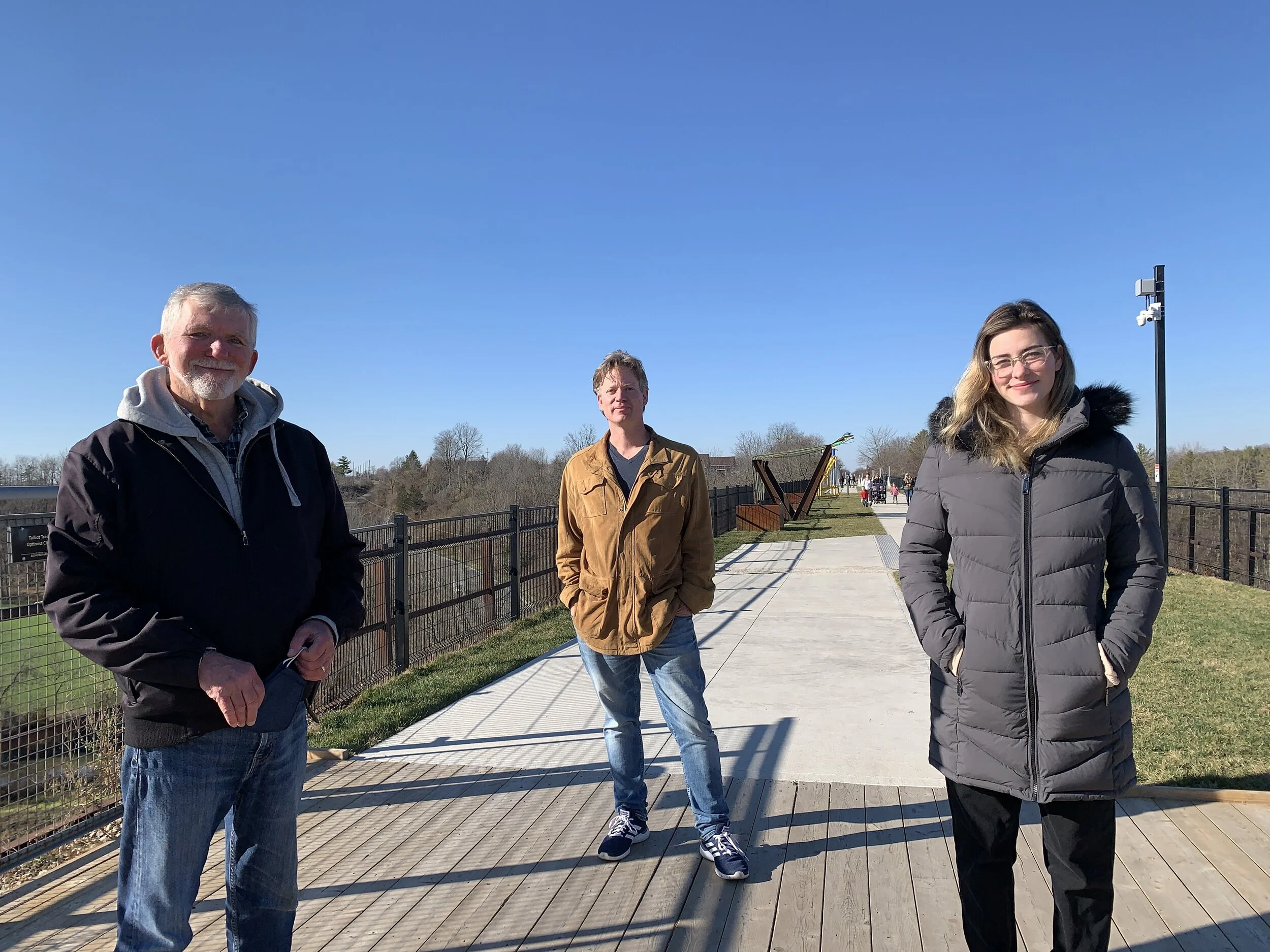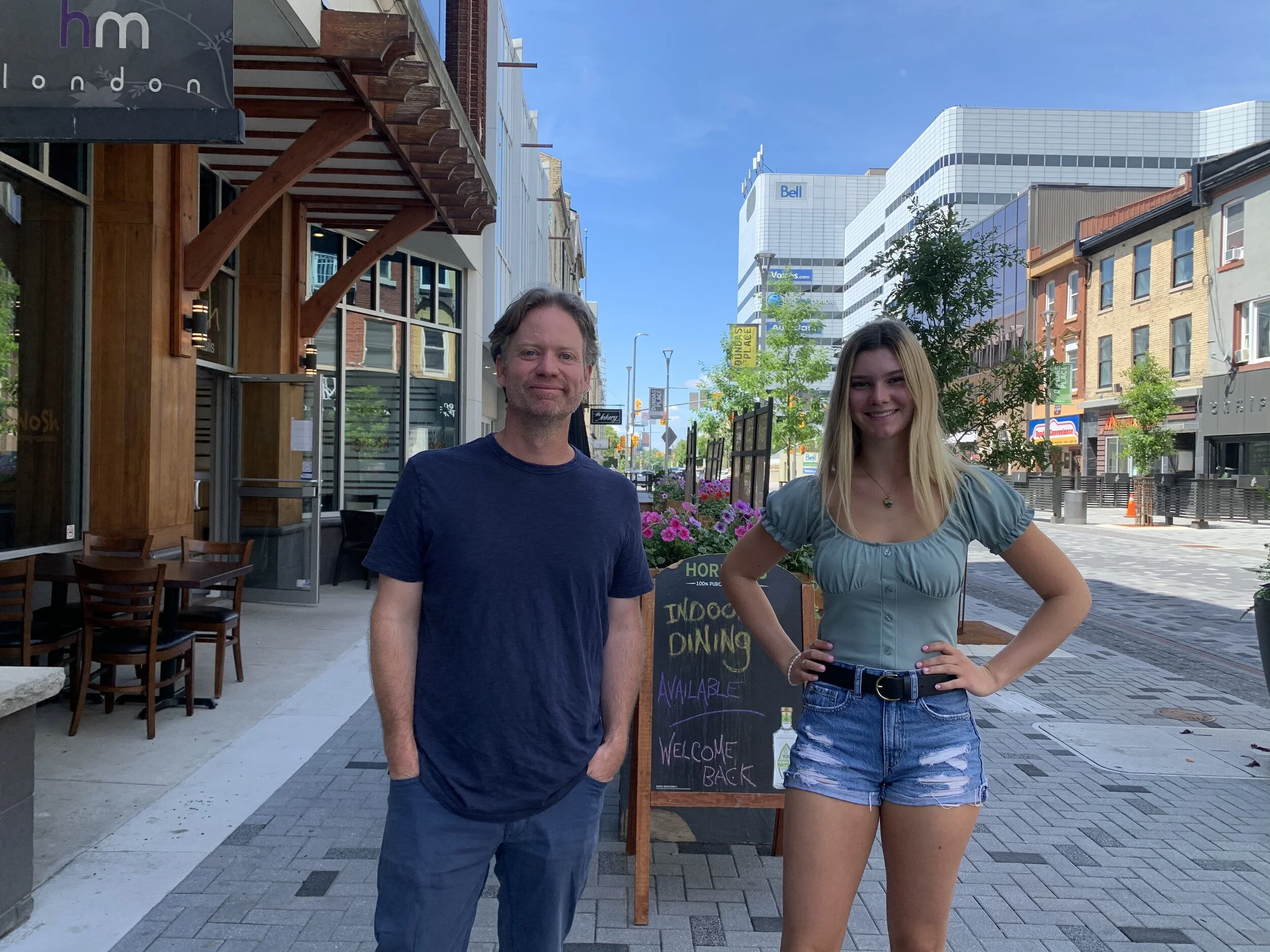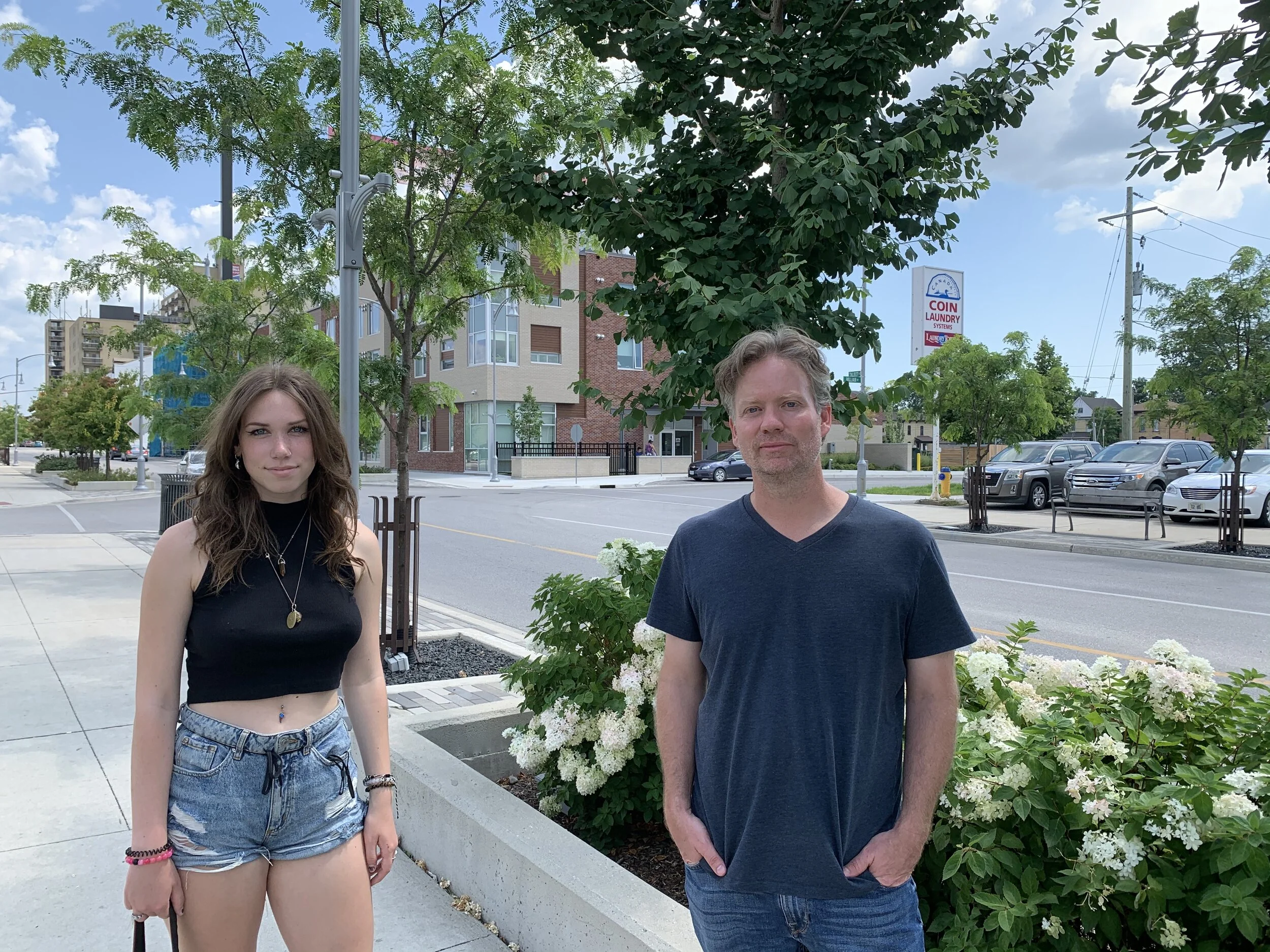Addressing Homelessness in London & St. Thomas
Andrew Gunn and Sophie Mutch of young & free press spoke recently with Jeff Yurek, Minister of the Environment for the Province of Ontario and MPP for Elgin-Middlesex-London, about homelessness in London and St. Thomas. Late in October, Yurek announced close to $7.2M in funding to address the issue locally, including support for modular housing in London and a new emergency shelter in St. Thomas.
Walking around London and St. Thomas, homelessness is obvious. In London, there are many people living and sleeping rough along Dundas Street downtown and in Old East Village, or in tents by railway tracks and elsewhere. Business owners and residents in St. Thomas have noticed more people congregating and sleeping downtown, particularly around the post office, next door to where the City set up a drop-in centre. The issue has been made worse by the pandemic, and this winter is going to prove challenging.
Recently, we spoke with Elgin-Middlesex-London MPP and Minister of the Environment Jeff Yurek about new funding from the provincial government designed to address the growing homeless crisis. We wanted to find out more regarding where the funding will be going, how people who are affected by homelessness will benefit, and how much thought has been given to the ways in which business owners in downtown areas are impacted by this issue.
The Province has allocated nearly $7.2M in an attempt to address the homeless crisis in London, St. Thomas and Elgin County. The City of St. Thomas will receive $927,831, which includes funds to establish a new permanent emergency shelter. The current option, Inn Out of the Cold, is open daily, maintained in significant measure by volunteers, and funded by the United Way and other community partners. In London, funding will be directed toward building new modular affordable housing and covering costs related to the emergency rental of motel and hotel rooms. The goal seems to be to address multiple issues simultaneously.
For St. Thomas, one interesting dynamic is that City Council will decide the location of the shelter. This is bound to be a well-discussed issue in the community. The new shelter will provide a warm place to stay as well as services to help people recover and find new opportunities. Minister Yurek mentioned that ‘‘this homeless shelter will not only give people a space to sleep, give them some food, a place to shower, but it will also be an access point for services for folks to find housing and also give them the social services supports that they may need to help look for a job.”
Although providing the homeless with a shelter is important, there is also a clear need for mental health services and addiction resources. “The shelter isn’t a long-term solution,” Yurek told us, “but it’s a semi-solution to get people indoors and somewhere safe for them – and then, utilizing resources through social services to provide them the access to more permanent housing and financial support.’’
This coordination of services is essential to try to counteract the forces that are leading to homelessness and chronic unemployment, including drug addiction and a lack of consistent mental health support. “Definitely you’ll see the Province has a multitude of programs to be put in place to help surround folks with the services they need right now,” Yurek advises. “If they are lucky enough to figure out which service to go to, they’re not all coordinated, so last year the government passed legislation which has created the Centre for Mental Health and Addiction, which is through the Minister of Mental Health, Michael Tibollo. This Centre will coordinate between all ministries the provision of mental health and addiction support. The government is putting out $179M of new money every year for the next ten years to build up the mental health and addictions support structure in the community.”
We are interested to see how the recently-announced funding will impact the homelessness issue in London. One of the goals is to construct modular affordable housing, as well as fund overflow hotel and motel rooms. This could have a real impact on how the homeless or near-homeless are assisted. We asked why the Province of Ontario decided to support the modular housing units in London.
“That’s the new push that municipalities are going for with regard to modular affordable housing, where it’s easy to expand and grow certain housing units,” Yurek commented. “London will be one of the early adapters to that program. I know that Mayor Ed Holder has more details of where it’s going to be in London and how it’s going to progress. The Province again is putting up the money, which will be under the control of the municipality. I know that Minister Steve Clark has been working with the federal government on this program because the money comes from both federal and provincial to grow this type of new affordable housing, which is quicker to build. It’s cheaper to maintain and it’s easily designed to be more accessible to folks. We’re going to make sure that London ticks off the boxes, but the entire program design will be coming from London. In addition, to help with relief in the short-term, one way that folks go is either to move to renting hotel rooms or motel rooms, just to give someone the structure of a place to live, give them the ability to have a place to call home, or home-base, where they can then apply for the other supports, whether it be OW or ODSP, to get some money flowing in. It also gives them an address, etc., so that they can get the proper training with the government and/or move towards a job.”
Recently, our team at young & free press has been coordinating funding for new murals and other projects in communities around southwestern Ontario, mainly in an effort to attract people to the downtown areas. We definitely enjoy supporting local small businesses, too, and wanted to find out from Minister Yurek whether the Province has been thinking specifically about how the investments in new affordable housing and social services can benefit downtown businesses and culture. “Yeah, thank goodness we have those businesses downtown, and they continue to do excellent work with regards to providing services to folks and also employment,” Yurek observed. “I think the future is for the municipalities to continue to ensure that we’re able to get social workers, mental health workers, on the ground to have discussions with folks that are living downtown on the streets or in the tents to try to provide them with an avenue to better housing.”
We hope that this approach will help. One has to wonder whether the cost of simply providing housing for people in need might be better. Over the past decade or so, there have been examples of a couple places – Finland, for example, and Utah in the United States – where there has been a push to reduce homelessness with a ‘housing first’ policy, which is based on finding permanent housing for people as fast as possible and then later providing other services that may be wanted such as help with addiction or mental health. (For information on the Finland example, check out this BBC article, and for a look at how this approach can start to crack without continuous refinement, here is an article from the Salt Lake Tribune.)
Interviews in the age of COVID-19! Ontario Minister of the Environment and Elgin-Middlesex-London MPP Jeff Yurek recently joined Andrew Gunn and Sophie Mutch of young & free press for a zoom meeting to discuss the homelessness crisis in London and St. Thomas. Also pictured is Delany Leitch, Executive Assistant to Jeff Yurek.
Are the investments that the Province of Ontario is making sufficient? Will there still be visible homelessness in London and St. Thomas? If so, what are the next steps? Currently in St. Thomas, the City is planning to build micro-apartments on the vacant second floor of the transit building downtown at Talbot and Moore Street in an attempt to add more accommodations. The message seems to be that more and more such initiatives will be necessary. Visible homelessness used to be a ‘big city problem’, but not anymore.
When we think of homelessness and those struggling with mental health or contending with addiction, some think only of adults, but adolescents can also struggle. It is important that youth are supported. High school diplomas are increasingly needed to secure employment, and without education, the poverty cycle often continues. If youth are not supported while they are youth, they may never be supported. It is extremely difficult to go from homeless to not-homeless, and for youth, who already have less opportunities because they are younger, it is crucial that there is a plan to help them specifically find housing and employment, and if they have not already, earn their high school credits. The Y.O.U. (Youth Opportunities Unlimited) building in London provides opportunities for education, skills training and employment opportunities, as well as safe emergency shelter. In terms of education, inside the Y.O.U. building is a TVDSB-run program entitled Cornerstone, helping at-risk youth earn credits to graduate.
Although it seems that the current approach of the government is to provide funding to supplement housing costs and build shelters, some politicians argue that the government should additionally set regulations on rent and housing costs to reduce homelessness in the future. Should the government intervene in housing prices? Would it help the homeless crisis? What is the future of rent and lease costs as well as homelessness if nothing changes? We look forward to following up with Minister Yurek and other local politicians to monitor whether these recent investments are sufficient, or if another strategy is required.







